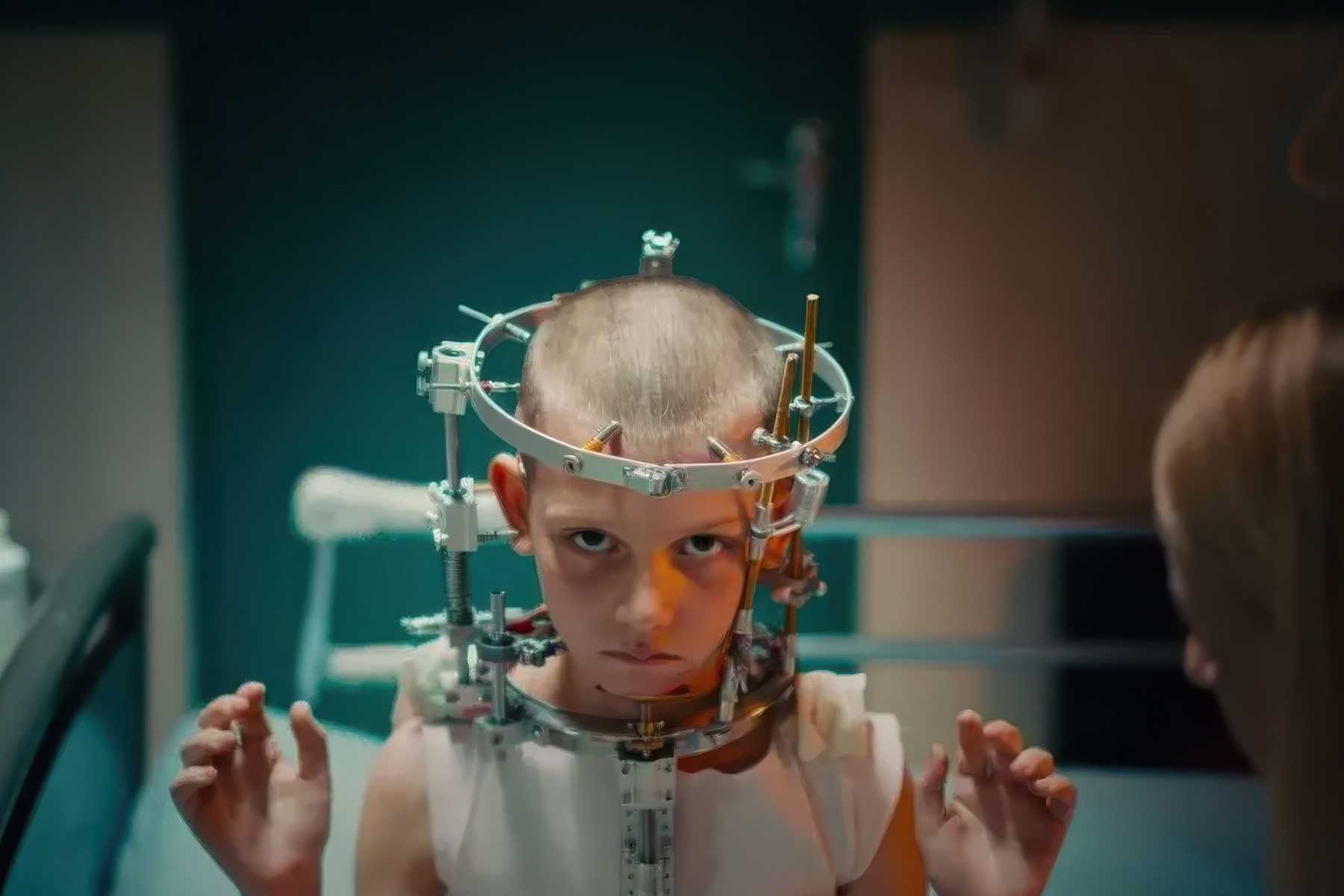In some respects, Titane, or Titanium, is why I go to film festivals. Or one of the reasons. This second film by French film director Julia Ducournau (Raw) is an encounter I’d rather not have had, because it places me in a box I’d rather not be in: not particularly liking it, vs. second guessing my dislike of it. That latter really got ratcheted up when the damn thing won the Palme D’Or.
For the Palme, I’d preferred Red Rocket by Sean Baker. I was at dinner outdoors my last night in Cannes when a most distinguished French film critic sat down at the adjacent table having just seen Afghar Fahrhadi’s A Hero (Gharheman) in the Competition. “Palme D’Or. A masterpiece,” he said, as I have heard him say rightly or wrongly about one film or another in Cannes restaurants for decades. He was a lot better plugged in than was I this year, as Red Rocket went home with nothing, and A Hero at least shared the runner-up Grand Prix with the Finnish Compartment No. 6.
Titanium harkens back to 90s’s queer cinema, Christine Vachon productions in spirit (Poison, Swoon, I Shot Andy Warhol), and the Fast and the Furious franchise in locomotion. However, Titanium is so outside the conventional cinema from which both Red Rocket and A Hero hail that I pulled back from the dinner chitchat for a moment to wonder how much we are prisoners of our generations and the filmmaking that defined them.
I usually deny that possibility, not me. Pivoting to Titanium, it’s edgy in a way I didn’t like, though I have a taste for the edge, and have proven it in the past. If only I could put my finger exactly on when. And there was plenty of evidence at the screening that the young audience did like.
Titanium turns loose a transgressive crazy brat who adultifies as opposed to matures, into a murderous avenger of women and LGBTQ grievances. Alexia (Agathe Roussell) is a perfect amalgam of rage and masculine motor obsession, having received a titanium plate in her bratty skull following her father rolling the car when he reached around into the back seat to clock her for being annoying. All grown up, she’s a spandex hood dancer on a gigunda Cadillac with a flaming paint job in a sea of Detroit muscle cars on the floor of something between an auto sales convention and strip bar. Very Vin Diesel more than VIN number.
After the show, we are along for the ride with cinematographer Ruben Impens amping the entire arc into high contrast, heavily saturated images, as Alexia becomes a murdering angel. We shift into fifth gear right off the line when Alexia whips a particularly deadly knitting needle hairstick out of her up-do and brain-kebabs a stalker in the parking lot. The knitting needle comes out a lot when she’s aggrieved for various reasons: male attraction, female stupidity – great scene when she dispatches some female lesbian leaning chipmunk, only to discover the nitwit girl has three roommates, two of whom are hulking black males. It’s her sigh of exasperation – the way Connery might have at more Russians than he bargained on before the martini– at the unfairness of it all, all these clowns popping up that come between her and sleep or food or whatever it is was on her mind. Sigh… she wastes the lot. Did she lick the needle clean? I’m not sure. But she could have.
To set Alexia and us free and clear of the prevailing social construct, she entombs her parents and immolates. We’re out here now with her, having to reinvent meaning and evade capture.
In Alexia, particularly Roussell’s deranged Birds version, Ducournau has unleashed not just hell but revenge hell on the world. Which becomes human and complicated by her encounter with Vincent, played by France’s more civilized masculinity principle, Vincent Lindon, here a fireman and crew head, who sometime in the past lost his lost son, and consents to believe that Alexia is the prodigal returned. Alexia intuits Vincent may be a good place to regroup and consents to play the part. There follows a quick locker room change, a head shave (there goes the needle), and a taping of breasts. Their father-“son” couple, is believable to no one but accepted by the fire crew—which is its own cynical piece of business handed down from l’etat c’est moi of French sun kings and crew chiefs. The relationship of father and ”son” plays itself out against the backdrop of a thriller hunt. Even a nihilist needs a daddy, and vice versa.
That’s where Titane knits together its queer, feminist and motorhead genres: I never before saw motor oil all over the maternity room floor. Neither had the Croisette, apparently.
That’s what I got. It writes for me better than it played at the time. Yet my sense is that the younger crowd the night I saw it, was mad for it. Hence, whatever else went on in that jury room sun-kinged by Spike Lee, they went decidedly edgy in picking Titane as the Palme.
Some filmmakers cut loose and play out the question at hand and kill the dog, the hell with the audience. There was a little more of that this year in Cannes. The end is nigh.
À LA MOUCHE / À LA VOLÉE (ON THE FLY)…
CANNES, Monday July 26 –
By Harlan Jacobson


